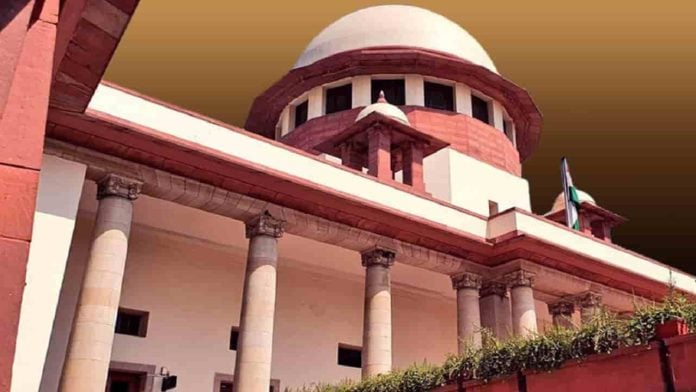The Supreme Court on Tuesday has received a Public Interest Litigation (PIL) seeking directions that all forms of Unilateral Extra-Judicial Talaq including Talaq-E-Hasan to be declared void and unconstitutional for being arbitrary and violative of Articles 14, 15, 21, and 25.
The plea also seeks directions to the Centre to frame guidelines for “Gender Neutral Religion Neutral Uniform Grounds of Divorce & Uniform Procedure of Divorce for all citizens”.
The plea was filed through Advocate Ashutosh Dubey who said that many Islamic countries have prohibited such behavior, but it continues to vex Indian society in general, and Muslim women in particular.
The advocate said that such practices wreaks havoc on the lives of many women who are still unaware of their rights .Many of the worm are still unaware of legal remedies and cannot even think of approaching the Court, accepting it as their fate.
The plea reads that the practice of Talaq-E-Hasan and other forms of unilateral extrajudicial talaq are not in accordance with modern human rights and gender equality principles.
The Plea also states that it also has disparity as Muslim women cannot perform Talaq-E-Hasan or other forms of unilateral extra-judicial talaq, whereas Muslim men can.
The plea adds that , such discrimination and inequality, hoarsely expressed in the form of polygamy, is abhorrent.
The plea talks about the imams, maulvis, and others who propagate, support, and authorize the Talaq-E-Hasan and other forms of unilateral extra-judicial talaq are grossly abusing their position, influence, and power by subjecting Muslim women to such heinous practice that treats them as chattel, thereby violating their fundamental rights guaranteed by Articles 14, 15, 21, and 25”.
The plea adds that the Muslim Personal Law seeks to recognize and validate Talaq-E-Hasan and other forms of unilateral extra-judicial talaq.
Furthermore, the plea states that the Dissolution of Muslim Marriages Act 1939 fails to secure for Indian Muslim women the protection from Talaq-E-Hasan and all other forms of unilateral extra-judicial talaq that women from other communities are protected from.
The plea talks about the failure of legislature in protecting the dignity and equality of women in general, and Muslim women in particular, particularly when it comes to marriage, divorce, and succession.
The Apex Court’s talk on Uniform Civil Code as an elusive Constitutional goal that the Courts have largely refrained from enforcing through directions and the Legislature has largely ignored except as a way of paying lip service, it adds.
“In light of changes in laws in various Islamic countries that either restrict or prohibit extra-judicial talaq, as well as the development of international laws, the Supreme Court is the only hope not only for Muslim women but also for the Muslim community as a whole, which has suffered as a result of personal laws that violate the fundamental rights guaranteed by the Constitution”, the plea reads.
The PIL has been filed through Ashwini Upadhyay in this regard which is already pending before the Top Court seeking similar relief.


